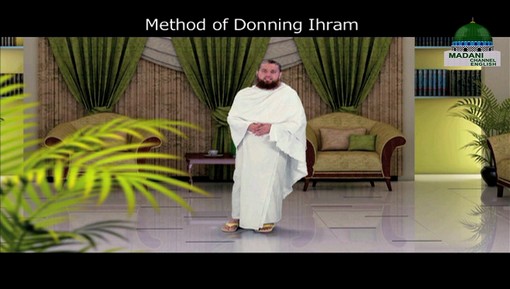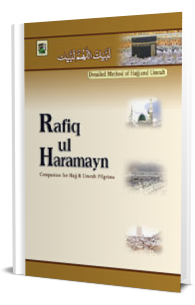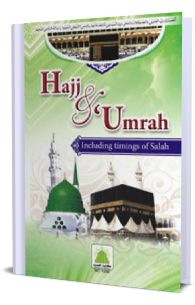
Zul-Hijja-til-Haraam is the month of mercy, blessings and virtues. The
reward for worship is increased many times during the first ten days of this
month. We have been persuaded to perform righteous deeds during these days in
blessed Ahadees. The Beloved Rasool صَلَّى اللہُ تَعَالٰى عَلَيْهِ وَاٰلِهٖ وَسَلَّم has said:
Amongst the days on which the worship of Allah Almighty is performed, there are
no days more beloved to Allah Almighty that He عَزَّوَجَلَّ be
worshipped in them than the ten days of Zul-Hijjah; the Sawm (fasting) of every
day out of these days is equal to the Siyam of one year and the Qiyam (standing
in prayers) of every night is equal to the Qiyam of Layla-tul-Qadr. (Sunan-ut-Tirmizi, vol. 2, pp. 192, Hadees 758)
Few virtuous acts, which are performed during this blessed month, are
being mentioned below, we can earn abundant rewards by acting upon them:
1. Observe Sawm
on the day of ‘Arafah
If possible observe Sawm on the day of ‘Arafah (9th Zul-Hijjah)
as by observing Sawm on this day gets the sins forgiven. The Beloved Rasool صَلَّى اللہُ تَعَالٰى عَلَيْهِ وَاٰلِهٖ وَسَلَّم has said:
I expect from Allah Almighty that Sawm (fasting) on the day of ‘Arafah may
remove the sins of the preceding and the coming year (1 year before and 1 year
after). (Sahih Muslim, pp. 454,
Hadees 2746)
2. Perform worship
on Eid-ul-Adha night
Many people spend the nights of Eids playing sports and doing frolics
though there are glad tidings of reward for performing worship during these
nights. The Beloved Rasool صَلَّى اللہُ تَعَالٰى عَلَيْهِ وَاٰلِهٖ وَسَلَّم has said:
Allah Almighty opens the door of goodness during four nights; one of them is
also the night of Eid-ul-Adha. (Durr-e-Mansoor,
vol. 7, pp. 402; summarized)
It is stated in another narration: There are five such nights in which
Du’a is not rejected; one of them is the night of Eid-ul-Adha. (Shu’ab-ul-Iman, vol. 3, pp. 342, Hadees 3713;
summarized)
In Ghunya-tut-Talibeen, it is stated: There are five such nights
throughout the year which if someone testifies and spends them in worshipping
with the intention to earn reward, Allah Almighty will make him enter Paradise.
These nights include the nights of Eid-ul-Fitr and Eid-ul-Adha; one should
worship during these nights and should not observe Sawm during its days (as
observing Sawm on both Eids is not permissible). (Ghunya-tut-Talibeen, vol. 1, pp. 327; summarized)
3. A Sunnah
before Eid Salah
One blessed practice of the Beloved Rasool صَلَّى اللہُ تَعَالٰى عَلَيْهِ وَاٰلِهٖ وَسَلَّم on the
day of Eid was that he صَلَّى اللہُ تَعَالٰى عَلَيْهِ وَاٰلِهٖ وَسَلَّم would go
to offer Salah of Eid-ul-Fitr after eating something, whereas he صَلَّى اللہُ تَعَالٰى عَلَيْهِ وَاٰلِهٖ
وَسَلَّم would not eat anything on the day of Eid-ul-Adha until he صَلَّى اللہُ تَعَالٰى عَلَيْهِ وَاٰلِهٖ وَسَلَّم would complete
(Eid) Salah. (Sunan-ut-Tirmizi, vol. 2,
pp. 70, Hadees 542)
Hakeem-ul-Ummat, Mufti Ahmad Yar Khan رَحْمَةُ اللہِ تَعَالٰی
عَلَيْه has said: It has been learnt that going [to offer Salah] after
eating something on the day of Eid-ul-Fitr and eating something after coming
back [from offering Salah] on the day of Eid-ul-Adha are Sunnahs. It is better
to eat the meat of sacrificial animal first. (Mirat-ul-Manajih, vol. 2, pp. 361)
4. Also act upon
it on the day of Eid
The Beloved Rasool صَلَّى اللہُ تَعَالٰى عَلَيْهِ وَاٰلِهٖ وَسَلَّم would go
to the Masjid to offer Eid Salah taking one way and would return taking another
way. (Sunan-ut-Tirmizi, vol. 2,
pp. 69, Hadees 541)
Mufti Ahmad Yar Khan رَحْمَةُ اللہِ تَعَالٰی عَلَيْه has said:
(It is for the reason that) there should be less crowd on the way, charity be
given to the Fuqara (poor people) of both ways, the graves of Ahl-e-Qurabat
(close relatives) which are situated on these ways be visited and both ways
become the witness of our Salah and faith. He صَلَّى اللہُ تَعَالٰى عَلَيْهِ
وَاٰلِهٖ وَسَلَّم would take a long way at the time of going, but when returning
he صَلَّى
اللہُ تَعَالٰى عَلَيْهِ وَاٰلِهٖ وَسَلَّم would
take a short way, so that more steps be taken at the time of going and more
reward be earned. It has been learnt that going to Eid-Gah [the place where Eid
Salah is offered] on foot and changing the way at the time of going and coming
from Eid-Gah are Sunnahs. (Mirat-ul-Manajih,
vol. 2, pp. 359)



















Comments